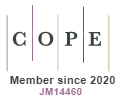Monte Cabeça de Velho: An element in the construction of educating cities in Mozambique
DOI:
https://doi.org/10.5585/45.2023.22883Keywords:
cabeça de velho, educating city, social educationAbstract
The central objective of this article is to understand the importance of the Cabeça de Velho Hill as a fundamental element in the construction of the educating city in the municipality of Chimoio, Mozambique. Methodologically, this is a qualitative research that used a bibliographical study associated with interviews to obtain information on the theme. The results of the study indicate that the Monte Cabeça de Velho is a meeting place of convergence between socio-cultural, community, tourist, artistic and educational activities, where people learn to value experiential learning and the formation of moral and ethical values. Therefore, Monte Cabeça de Velho is a place that favours the community to create spaces for leisure, culture and education (local, traditional and social history), thus contributing to the improvement and development of the quality of life of the residents of the city of Chimoio.
Downloads
References
ARPAC. Manica, na rota do turismo doméstico. Levantamento de aspectos socioculturais do Monte Bengo ou Cabeça do Velho. Chimoio, Arquivo, 2017.
BARDIN, Laurence. Análise de Conteúdo. 1. ed. São Paulo: Edições 70. 2011.
DELORS, Jacques. Educação. Um Tesouro a Descobrir. Relatório para a UNESCO da Comissão Internacional sobre Educação para o século XXI. São Paulo: Cortez Editora, 1996.
GARCIA, Valéria A. A educação não formal como acontecimento. 428f. Tese (Doutorado em Educação) – Faculdade de Educação. Universidade Estadual de Campinas: 2009.
FREIRE, Paulo. A Educação na Cidade, São Paulo Cortez Editora, , 2001.
LARROSA, J. Linguagem e educação depois de Babel. Belo Horizontte: Autêntica, 2004.
LÉVI-STRAUSS, Claude. Antropologia estrutural. 2. ed. Rio de Janeiro: Tempo Brasileiro, 1970.
LUZURIAGA, Loureiro. Pedagogia Social e Política. São Paulo: Companhia. Editora Nacional, 1960.
MACHADO, J. (2004a). Escola, município e cidade educadora. A coordenação local da educação, In, Políticas e Gestão Local da Educação – Actas do III Simpósio sobre Organização e Gestão Escolar. Aveiro: Universidade de Aveiro.
PEIRCE, Charles Sanders. Collected Papers of Charles Sanders Peirce. Charles Hartshorne e Paul Weiss ed., Cambridge, Massachusetts: The Belknap Press of Harvard University Press, 1974.
PETRUS, Antoni. Novos âmbitos em Educação Social. In: ROMANS, M., PETRUS, A., TRILLA, J. Tradução ROSA, Ernani. Profissão Educador Social. Porto Alegre: Artmed, 2003.
ROLNIK Raquel. O que é Cidade. Editora Brasiliense – Série Primeiros Passos - 84pg, São Paulo, 1988.
SOUZA NETO, João Clemente de, Roberto da Silva e Rogério Moura (Orgs). Pedagogia Social. São Paulo: Expressão e Arte Editora, 2009.
SUANA, E. Mouzinho. Introdução à cultura teve. SLE, Matola. 1999
VIANA, Nildo. Mito e Ideologia. UFRN-Natal. 2011.
VILLAR-CABALLO, M. A Cidade Educadora. Nova Perspectiva de Organização Intervenção Municipal. Lisboa: Edições Piaget(2001). .
https://www.institutoalgar.org.br/educacao/educacao-desenvolvimento-social/. Acessado em 14.12.2021).
Downloads
Published
How to Cite
Issue
Section
License
Copyright (c) 2023 Os autores

This work is licensed under a Creative Commons Attribution-NonCommercial-ShareAlike 4.0 International License.
- Abstract 561
- PDF (Português (Brasil)) 524







